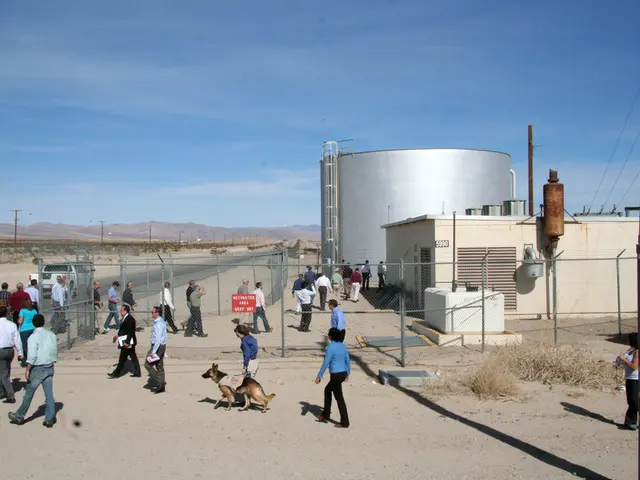Reduced Inflow of Foreign Tourists to the US May Lead to Overwhelming Financial Losses, Study Predicts
Forecasted Drop in International Spending in U.S. as Negative Perceptions Mount
A decrease of $8.5 billion in spending from foreign visitors to the U.S. is anticipated this year, according to a research note published by Oxford Economics. This decline represents a 5% decrease compared to the previous year and is primarily attributed to reduced international foot traffic. International arrivals to the U.S. are predicted to fall 9% this year, Aran Ryan, director of industry studies at Tourism Economics, revealed in a research note last week.
The economic impact of reduced foreign tourism spending could be particularly significant for sectors reliant on international commerce.
The World Travel & Tourism Council expects the U.S. economy to lose a whopping $12.5 billion in spending from international visitors by 2025, posing a direct blow to the economy across communities, jobs, and businesses nationwide.
Perceptions of the U.S. play a pivotal role in travel decisions, with the Trump administration's "posturing and policy" on contentious issues like border security and tariffs on long-standing trade partners creating sentiments that deter would-be travelers, as conveyed by Ryan.
International flight bookings to the U.S. between May and July have dropped 11% year-over-year as of April, indicating a weak outlook that is likely attributable to travelers choosing alternative destinations, according to Ryan. Europe and Canada, in particular, are lagging behind, with air bookings pacing 10% and 33% behind, respectively.
The U.S. Travel Association projects that the U.S. will forfeit $21 billion in travel-related revenue in 2025 if current trends continue. Each 1% decrease in spending from foreign visitors correlates to a $1.8 billion loss for the U.S. economy per year, according to the trade group.
A strong U.S. dollar may also discourage international visitors, as it makes U.S. goods and services more expensive for tourists utilizing foreign currency.
Experts point to potential fears tied to weaker growth prospects for the global economy as another factor discouraging foreign travelers, some of which stem from concerns about trade barriers and policy uncertainties.
President Trump has imposed or announced tariffs on several countries and products since his inauguration, with the latest being a 50% tariff on the European Union, which was later delayed until July 9.
Travel expert Geoff Freeman suggested that growing concerns surrounding U.S. immigration policy may be the most significant recent development, with many travelers fearing increased detentions, device searches, and deportations.
Heading into 2025, Oxford Economics had initially expected about 9% growth in international arrivals and a 16% increase in their spending. The predicted drop in international visitors stands to undermine the recovery of the travel and tourism sector, which supported over $2.6 trillion in the U.S. economy and 20 million jobs in 2024.
- The decline in foreign tourism spending could have a significant impact on sectors that rely heavily on international commerce, such as the finance sector, as these industries may struggle to maintain their revenue streams.
- In the realm of finance, the drop in international tourism spending could lead to a decrease in the overall revenue generated by the U.S. economy.
- The economic downturn in various markets caused by reduced foreign tourism spending could potentially influence the lifestyle and travel choices of Americans, as they might choose to invest their resources in domestic travel instead.
- The political landscape, particularly the Trump administration's policy on contentious issues like border security, tariffs, and immigration, has a direct impact on public perceptions about the U.S., which in turn can influence the decision to travel to or invest in the country.
- General news reports indicate that the global economy might face weaker growth prospects in the coming years, which could discourage foreign travelers from choosing to visit the U.S., potentially impacting the tourism and travel industries.








